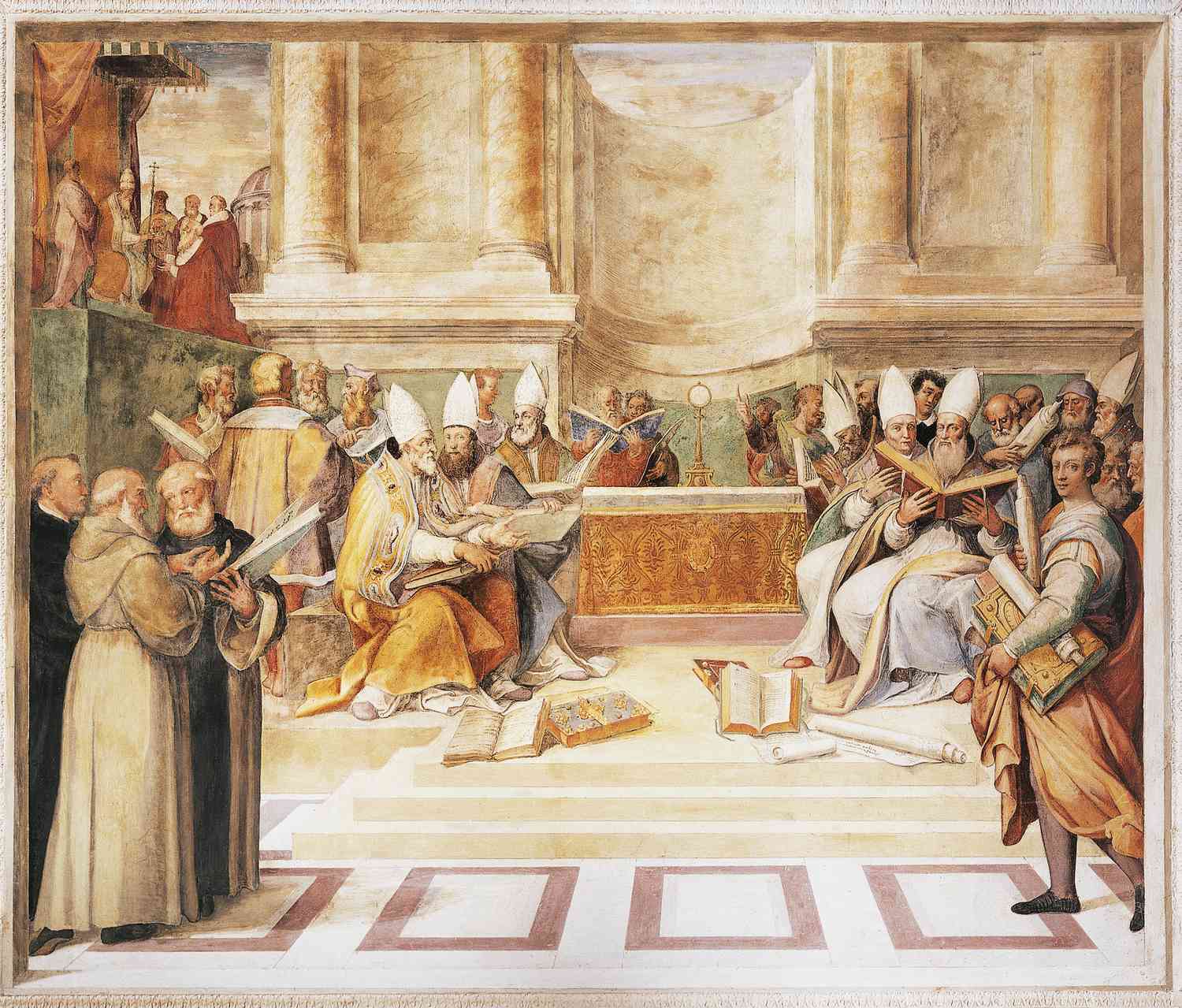438. Don't Give Up Pope: Catholic Reformation
How the Counter-Reformation or Catholic Reformation created a context for philosophy among Catholics, especially in Spain, Portugal, and Italy.
Themes:
• A. Bamji, G.H. Janssen, and M. Laven (eds), The Ashgate Research Companion to the Counter-Reformation (Farnham: 2013).
• J. Casey, Early Modern Spain: a Social History (London: 1999).
• J.W. O’Malley, Trent: What Happened at the Council (Cambridge MA: 2013).
• W. Reinhard, “Reformation, Counter-Reformation and the Early Modern State: a Reassessment,” Catholic Historical Review 75 (1989), 383-405.
• X. Tubau (ed.), Rethinking Catholicism in Renaissance Spain (New York: 2023).
• S. Tutino, Shadows of Doubt: Language and Truth in Post-Reformation Catholic Culture (Oxford: 2014).
See also the general bibliography for this series.





Comments
A very good episode on a…
A very good episode on a very complex and difficult topic. O'Malley, mentioned in the bibliography, prefers "Early Modern" which, while it escapes from some problems, creates others. It is remarkably bland, saying nothing, and modernity should rather begin in the eighteenth century not the sixteenth. I really look forward to this part of the series. Even secular university presses are publishing a great deal in this area. Perhaps the Protestant Reformation has just been used up and there is more virgin territory here.
Monty Python
Given the nod to Monty Python, just once I'd like to hear the introduction include '... with the support of the Philosophy Department of the University of Wooloomooloo, ...'
Mike
Deeply disappointed in counter-reformation episodes
Thank you for giving me an engaging Monday morning workout podcast for many years and years to come.
I will try to maintain some optimism that the philosophy being produced by half of Europe will be covered at some point in this series, but to date the series has felt like "the History of anti-Catholic canards without any gaps during the counter-reformation period." I look forward to episodes covering the philosophical (and obviously theological) ideas espoused by the great thinkers of this period of history.
Thanks and have a happy Easter!
In reply to Deeply disappointed in counter-reformation episodes by Paul Fairbanks
Counterreformation
Sorry you haven't liked it so far - you will probably enjoy it more once I get to Iberian scholasticism, or even before that when I do Teresa of Avila and John of the Cross.
But I take exception to your saying that it has been anti-Catholic. I mean, I obviously had to say something about both the Inquisition and Colonialism because they are so significant as the context for Counter-Reformation thought. Just for instance, when I talk about Teresa I have to discuss her run-ins with the Inquisition, and the Valladolid debate is one of the hallmark intellectual events of the whole period. And in discussing these topics, I have been far from unduly harsh. To the contrary, when I talked about the Inquisition I explicitly discussed the revisionist historical view that it was not a particularly bad version of suppression for the time period. Obviously I couldn't say anything like that about Colonialism ("this mass murder on continental scale wasn't so bad after all"), but at least there, rather than diving right into the Colonialism debate, I had an episode on scientific advances connected to global exploration.
Then too, it's not like I was uncritical of the Protestants; we talked about Luther's antisemitism and I think the only figure from the whole period I really took against was Calvin, and my difficulty warming to him was explicitly discussed in the episode on him.
Being neither Catholic nor Protestant I don't really have a "side" here, and I have found things to admire and deplore throughout the whole series. I think it would be wrong to discuss the more horrific events as if they were not awful. "Canards" suggests I was oversimplifying or exaggerating, and perhaps I did somewhere, but if so I would need a more specific criticism to know what you mean.
Anyway happy Easter to you too! Thanks for listening, even if you are not always enthusiastic about my approach.
Add new comment